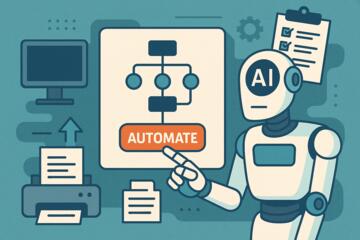Why Productivity and Efficiency Matter More Than Ever
In today’s fast-paced digital world, productivity and efficiency are the lifelines of success. Whether you’re managing a global team, running a startup, or freelancing from your laptop, the right tools can save hours each week.

Studies from Harvard Business Review show that professionals waste up to 20% of their time on disorganized workflows and duplicated tasks. Fortunately, with the right combination of software and systems, you can reclaim that time, optimize collaboration, and focus on what truly matters — results.
This article explores the essential tools for enhancing productivity and efficiency, covering everything from task management to automation.
The Foundation of Productivity: Choosing the Right Tools
1. Understanding Your Workflow Needs
Before investing in software or apps, identify where bottlenecks occur.
Ask yourself:
-
Are communication gaps slowing your team?
-
Do you spend too much time tracking tasks manually?
-
Is document organization a daily struggle?
Tip: Map your workflow and identify which tasks can be automated or delegated using technology.
Project and Task Management Tools
1. Asana: Organize Everything in One Place
Asana is one of the most popular project management tools used by companies like Airbnb and Spotify.
Key Features:
-
Task and project tracking with deadlines and assignees.
-
Calendar and Gantt-style timeline views.
-
Integrations with Google Workspace, Slack, and Zoom.
Why It Works:
It transforms large projects into manageable steps, keeping everyone accountable and aligned.
2. Trello: Visual Workflow Simplicity
Trello uses a Kanban-style board that’s intuitive and great for visual thinkers.
Best For: Freelancers, startups, and creative teams.
Highlights:
-
Drag-and-drop cards for task tracking.
-
Workflow automation with Butler (Trello’s built-in bot).
-
Collaboration features like tagging, file sharing, and comments.
Example: Marketing teams at Fender Guitars use Trello boards to coordinate product launches and creative content.
3. ClickUp: All-in-One Productivity Platform
ClickUp combines project management, time tracking, and documentation in one ecosystem.
Advantages:
-
Custom dashboards and progress tracking.
-
Integrations with GitHub, Outlook, and CRM tools.
-
Built-in AI writing assistant for documentation.
Pro Tip: Use ClickUp for OKR tracking and performance metrics — ideal for growing teams.
Time Management and Focus Tools
1. Toggl Track
Perfect for freelancers or teams needing transparent time tracking.
Features:
-
One-click timers for projects.
-
Detailed reports by client or task.
-
Integration with Asana, Jira, and Notion.
Stat: According to Toggl, companies that implement consistent time tracking improve billable time by up to 23%.
2. RescueTime
Automatically tracks how you spend your time online and categorizes activities into productive and distracting ones.
Use It To:
-
Identify time-wasting habits.
-
Set focus goals (e.g., 3 hours of deep work per day).
-
Block distracting websites.
Example: Writers and designers often use RescueTime to build structured creative routines without interruptions.
3. Forest (for Focus and Mindfulness)
An innovative app that helps you focus by “growing” virtual trees when you avoid distractions.
Why It Works:
It gamifies concentration, combining productivity with mindfulness — ideal for remote professionals who need motivation.
Communication and Collaboration Tools
1. Slack: Streamlined Team Communication
Slack is essential for real-time team communication and collaboration.
Benefits:
-
Channels for topic-based conversations.
-
Instant file sharing and integrations with over 2,000 apps.
-
Audio/video huddles for quick discussions.
Example: Shopify uses Slack to keep its 10,000+ employees connected across time zones.
Tip: Create dedicated channels for projects and departments to prevent clutter.
2. Microsoft Teams
Integrated with the Microsoft 365 ecosystem, Teams is perfect for enterprises using Outlook and SharePoint.
Features:
-
Secure video conferencing.
-
Document co-editing.
-
Enterprise-grade security for sensitive information.
Why It’s Effective:
It unifies chat, meetings, and file sharing in one interface.
3. Zoom: The Standard for Remote Meetings
While originally known for video calls, Zoom now includes whiteboards, scheduling, and workflow integrations.
Best Use: Client meetings, webinars, and hybrid work coordination.
Tip: Use Zoom’s AI summary feature to automatically generate meeting notes — a big time-saver.
Document and File Management Tools
1. Google Workspace (Drive, Docs, Sheets, Meet)
Google’s cloud ecosystem remains the gold standard for collaboration.
Advantages:
-
Real-time co-editing across documents.
-
Secure file storage with version control.
-
Seamless syncing across devices.
Example: Many universities, including Stanford, use Google Workspace for academic and research collaboration.
2. Notion: All-in-One Knowledge Base
Notion merges notes, databases, and project management — a must-have for creative professionals.
Best For: Entrepreneurs, writers, and teams building internal knowledge hubs.
Use Cases:
-
Building wikis.
-
Tracking tasks.
-
Storing SOPs and research.
Pro Tip: Combine Notion with templates like “Weekly Review” or “Goal Tracker” to maintain momentum.
3. Dropbox Business
Trusted by millions, Dropbox remains a leader in cloud storage.
Highlights:
-
File recovery and version history.
-
Offline access and advanced sharing controls.
-
Integration with Slack, Adobe, and Zoom.
Statistic: Over 700 million users rely on Dropbox for personal and business file management.
Automation and AI Tools for Efficiency
1. Zapier: Connect Everything
Zapier automates repetitive tasks between apps (e.g., sending form submissions from Typeform to Google Sheets).
Example Use Case:
When someone books a demo via Calendly, Zapier automatically creates a new lead in your CRM.
Result: Hours saved weekly — no more manual data entry.
2. ChatGPT or Claude: AI-Powered Assistance
AI writing tools help with brainstorming, drafting, and summarizing content.
Use Cases:
-
Writing client emails.
-
Generating blog outlines.
-
Automating customer responses.
Note: Use these tools responsibly — AI should enhance creativity, not replace it.
3. IFTTT (If This Then That)
A lightweight automation tool ideal for personal productivity.
Examples:
-
Automatically mute your phone during meetings.
-
Sync new email attachments to Dropbox.
-
Post scheduled social media updates.
Benefit: Keeps everyday tasks running on autopilot.
How to Choose the Right Productivity Stack
1. Start with Your Goals
Define what “productivity” means for you — faster delivery, fewer meetings, or better collaboration?
2. Prioritize Integration
Select tools that work well together. For instance, Notion connects with Slack, while Asana integrates with Google Calendar.
3. Test Before Committing
Most premium tools offer free trials. Spend a week experimenting before purchasing annual plans.
4. Avoid Tool Overload
Too many apps can backfire. Stick to 5–7 core tools that solve real pain points.
Common Productivity Mistakes
-
Chasing every new app: Stick to proven tools and consistent workflows.
-
Ignoring automation: Manual repetition wastes valuable hours.
-
Skipping reviews: Audit your workflow quarterly to ensure relevance.
-
Poor onboarding: Train your team on how to use each tool efficiently.
-
Neglecting digital hygiene: Unorganized files and notifications disrupt focus.
Author’s Insight
As someone who’s managed remote teams across three continents, I’ve learned that tools only work if your habits do.
A few years ago, my marketing agency used five different platforms for project tracking. We eventually consolidated everything into Asana + Slack + Notion, and productivity improved by 32% within one quarter.
My advice?
Start small. Pick tools that feel intuitive, and optimize your workflow before scaling. Technology amplifies efficiency, but discipline sustains it.
Conclusion
Enhancing productivity and efficiency isn’t about working harder — it’s about working smarter with the right tools.
From Asana for project management to Zapier for automation, each tool adds structure, speed, and clarity to your workflow.
In a world full of distractions, investing in the right technology isn’t just a competitive advantage — it’s a necessity.
Start optimizing today — your future productivity depends on it.







